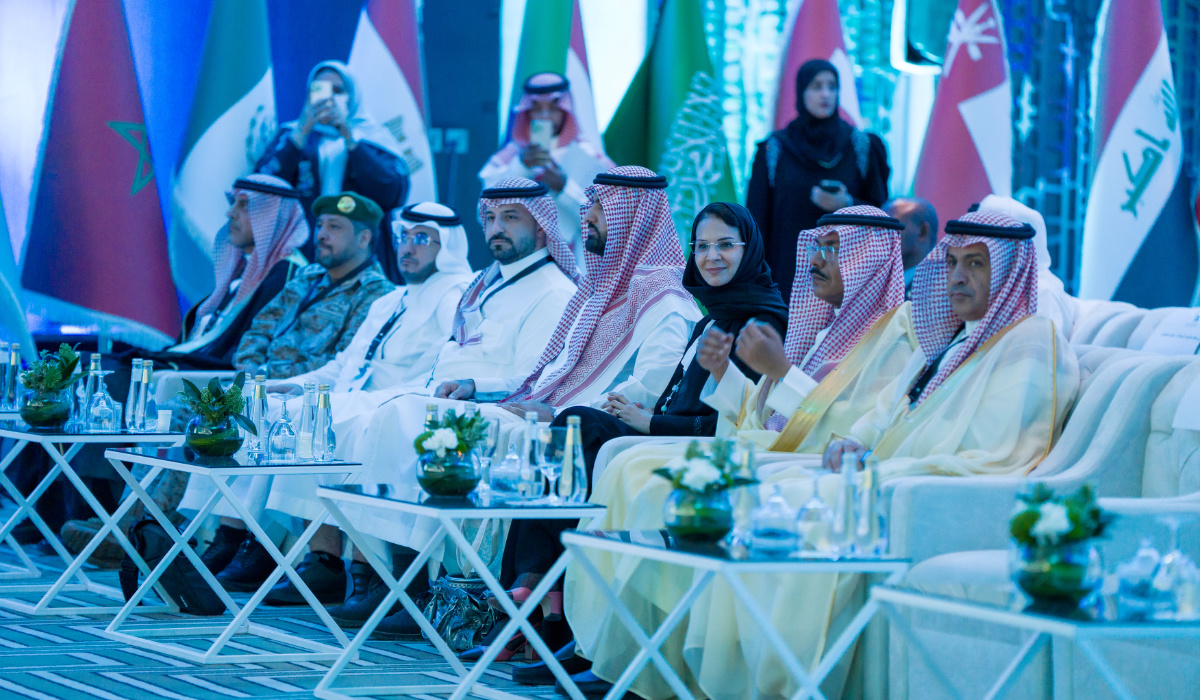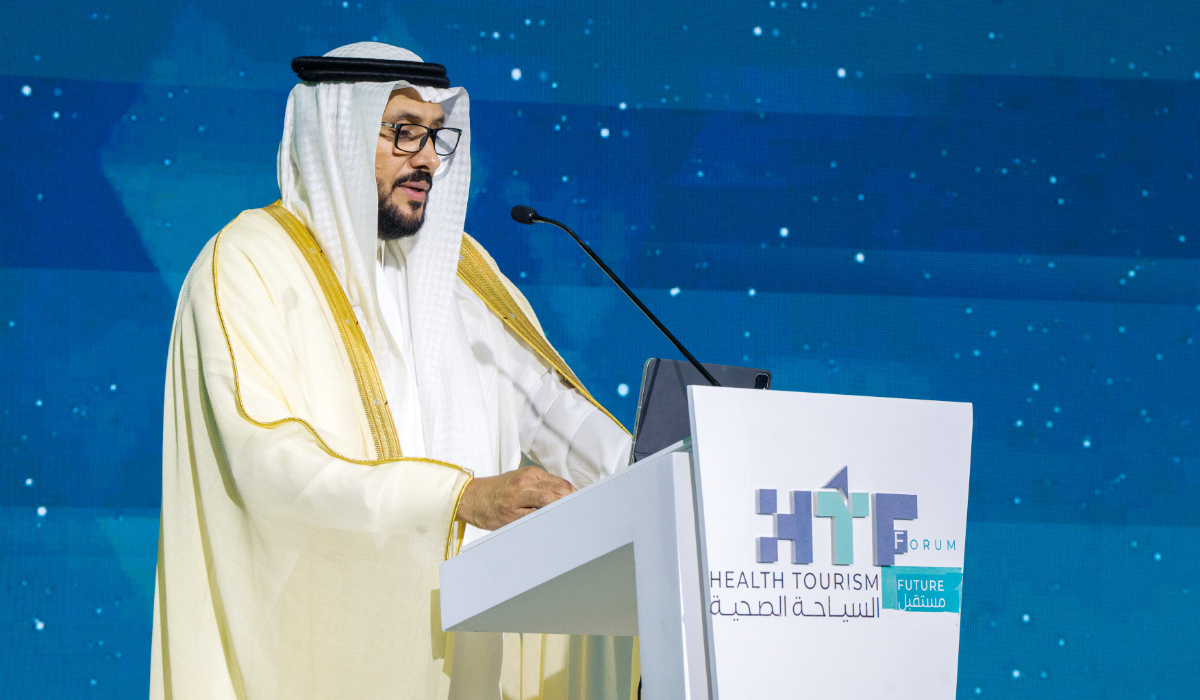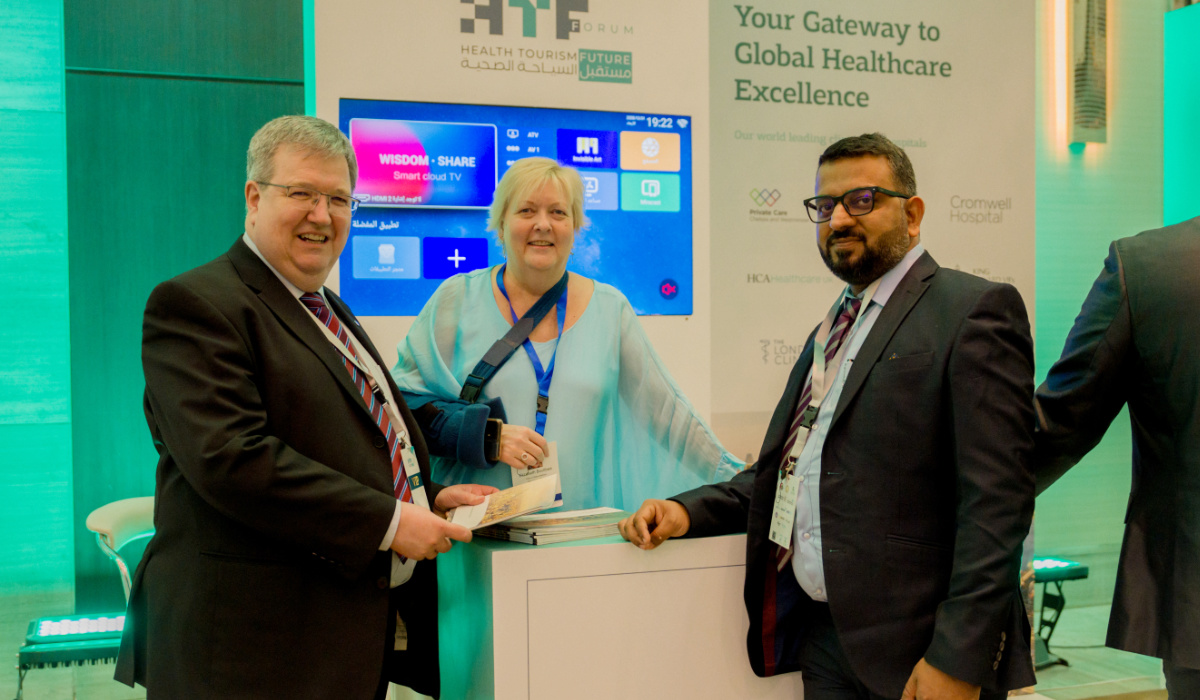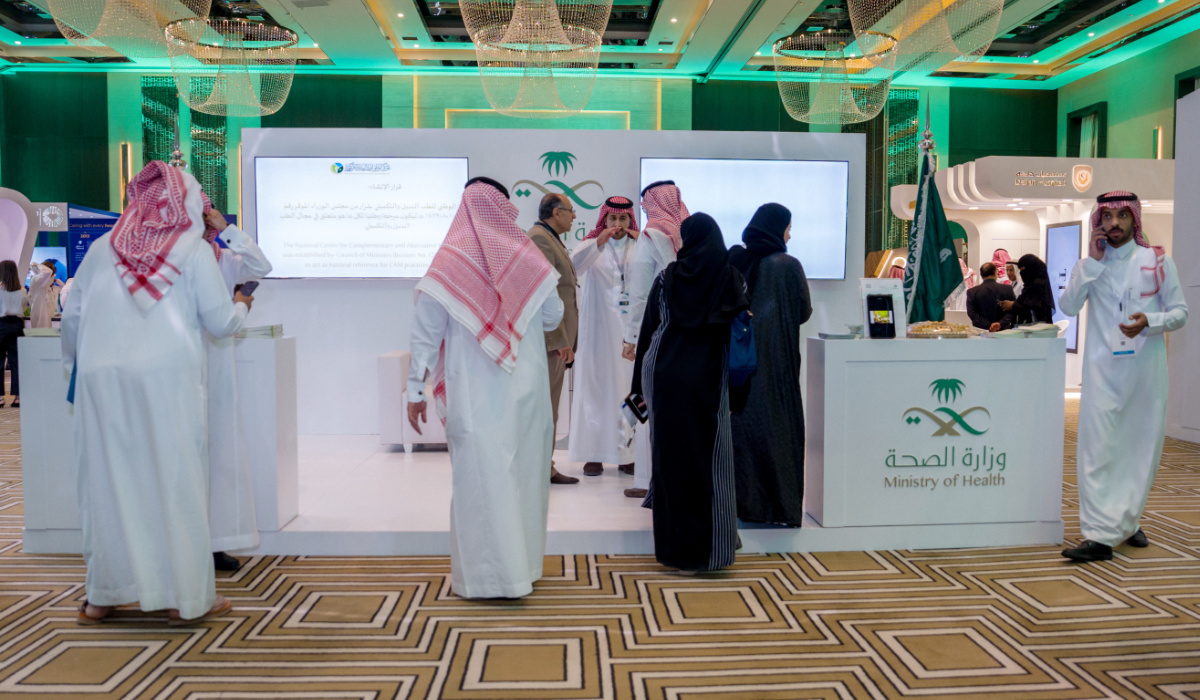RIYADH: Saudi Deputy Minister of Investment Transaction Saleh Al-Khabti said that the healthcare sector’s contribution to the Kingdom’s gross domestic product is projected to reach about $66.6 billion, with the creation of more than 245,000 jobs by 2030.
Al-Khabti shared the information during a panel discussion titled “The Kingdom and Vision 2030 as a Global Health Tourism Destination”, at the Health Tourism Future Forum, which began Sunday in Riyadh.

The three-day event features presentations, workshops, a young researchers' forum, business meetings, seminars, and interactive sessions. (AN Photo by Huda Bashatah)
The Health Tourism Club and the Health Tourism Association, in partnership with the Global Healthcare Travel Council, launched the forum to identify priorities and redefine visions for health tourism at regional and international levels.
The forum, which this year coincides with the eighth anniversary of the launch of Saudi Arabia’s Vision 2030, is an annual global platform for the health tourism industry aiming to develop future strategies in the Kingdom’s healthcare sector. The global healthcare industry is estimated to be worth $4.4 trillion.

Ahmed Al-Ouraij, President of the Health Tourism Association said the forum represents the birth of the first specialized health tourism initiatives. (AN Photo by Huda Bashatah)
Al-Khabti said that significant investment is needed in the Saudi healthcare sector over the next seven years, much of which will be driven by the National Investment Strategy.
“Regarding foreign direct investment, Saudi Arabia reached about $19 billion, a three-time increase since 2017,” he said.
Ahmed Al-Ouraij, president of the Health Tourism Association, said that the forum marked the beginning of the first specialized health tourism initiatives.

Healthcare London is a collaborative of nine healthcare providers - 23 hospitals - such as the Cleveland Clinic and Imperial College. (AN Photo by Huda Bashatah)
Health tourism involves individuals traveling to another country for medical treatment or wellness services. The sector has grown rapidly in recent years due to increasing healthcare costs in many countries and advances in medical technology and expertise in specific regions.
Mahmoud Abdulhadi, deputy minister of tourism for destination enablement, mentioned that Saudi Arabia’s tourism industry has made significant progress, exceeding its target of 106 million visitors seven years ahead of schedule.
“The total amount spent on the total population of visitors was about $66.6 billion, a direct contribution to the economy,” Abdulhadi said.

The three-day event features presentations, workshops, a young researchers' forum, business meetings, seminars, and interactive sessions. (AN Photo by Huda Bashatah)
The deputy minister also said that about 10 percent of all employment rates globally come from the tourism or tourism-related sectors. In Saudi Arabia, tourism contributes 4 percent to the national GDP.
“Tourism is a key contributor to Vision 2030 because it creates employment. When we started our journey in 2019, we had 600,000 employees in the sector, and today we have 925,000.”
Abdulhadi added that increasing the number of employees to 1.6 million by 2030 seemed on target, given the current trajectory.
“Leisure is now our second-largest source of visitation after spiritual visits to the holy sites and our fastest growing sector,” he said.
Conversely, only a small percentage of visitors to the Kingdom travel for medical or wellness purposes.
Abdulhadi said: “The reason might be because health tourism hasn’t been marketed well enough or in the right way.”
While the health tourism sector is still in its early stages, Abdulhadi believes there is a strong domestic market, or potential, for wellness and health travel.
Health tourism can range from medical treatment to wellness services. Abdulhadi said: “We have on the technical side people who are coming in for treatment for specific illnesses, and then we have on the soft side people who are coming in for what a spa experience in a nice destination is.”
He said that certain destinations lend themselves to potential wellness offerings, but that having the proper infrastructure in place is critical.
In the exhibition accompanying the conference, Healthcare London, a collaboration between nine healthcare providers, announced its official launch.
It was formed to allow more international patients to access the treatment that London’s leading private healthcare providers and NHS teaching hospitals can offer.
Michael Barker, project manager at Healthcare London, told Arab News: “Ever since we started working on Healthcare London, Saudi Arabia has been our No.1 market, especially because we know it very well.”
The forum also addresses challenges, proposes innovative solutions for sustainable growth, and works to raise awareness about the need to prioritize health and well-being. It is the culmination of the Kingdom’s drive to boost medical tourism and enhance the local and global healthcare sector.
The three-day event includes presentations, workshops, a young researchers’ forum, discussions, business meetings, seminars and interactive sessions. The activities focus on aspects of medical tourism such as innovation, investment, marketing and legislation.
























